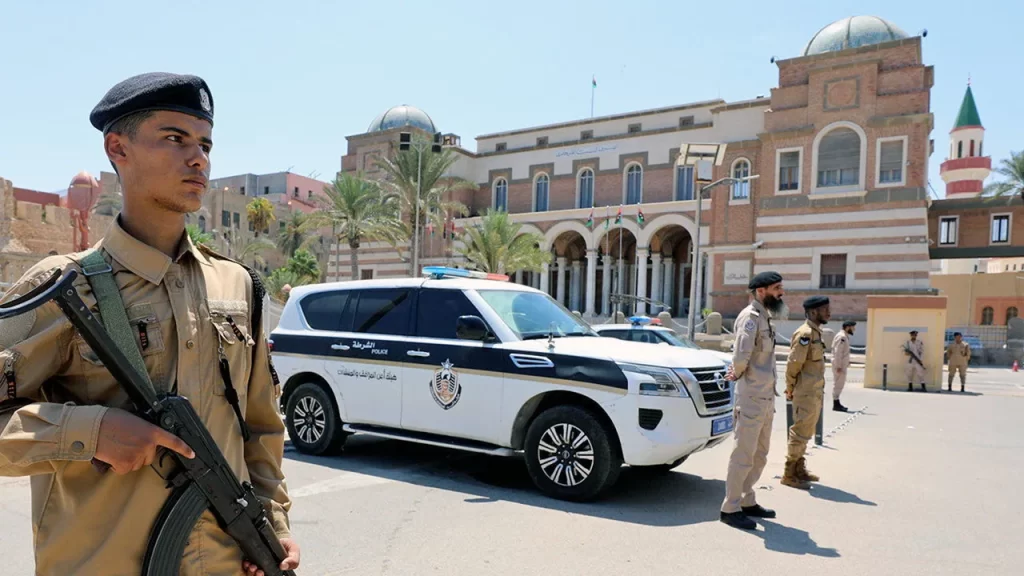Libya Appoints New Central Bank Governor Amid Political Tensions
3 min read

Libya’s eastern parliament has officially appointed Naji Mohamed Issa Belqasem as the new governor of the central bank, following the dismissal of former governor Sadiq al-Kabir last month by the presidential council based in Tripoli. The unanimous decision came on Monday, with all 108 lawmakers voting in favor of Belqasem, who previously held the position of director of banking and monetary control at the central bank.
In addition to appointing Belqasem, the parliament also named Mari Muftah Rahil Barrasi as the new deputy governor. Together, they are tasked with establishing a new board of directors for the central bank within the next ten days. This appointment is part of a larger U.N.-facilitated agreement aimed at establishing a unified leadership structure for Libya’s central bank.
Last month, the Tripoli-based presidential council attempted to install Mohamed Abdul Salam al-Shukri, the former deputy governor, as al-Kabir’s successor. This council aligns itself with the government of Prime Minister Abdul Hamid Dbeibah, which controls the western regions of Libya. However, the eastern parliament and the Supreme Council of State, an advisory body located in the capital, contested this move, arguing that al-Kabir’s removal was illegitimate. They asserted that such decisions should involve coordination between both governing bodies, in line with interim regulations established during U.N.-backed negotiations aimed at unifying the country’s institutions.
Sadiq al-Kabir had been at the helm of the central bank since October 2011, the year Libya descended into turmoil following a NATO-backed uprising that ousted longtime leader Moammar Gadhafi, who ruled for over 40 years. Throughout his tenure, al-Kabir faced increasing criticism from officials across Libya’s political spectrum, particularly regarding the management and allocation of the nation’s oil revenues.
The political landscape in Libya remains deeply fragmented, with rival factions vying for control over resources and governance. This division has hindered efforts to achieve lasting stability and economic recovery in a country that holds Africa’s largest oil reserves. The ongoing disagreements between the eastern parliament and the western government underscore the complexities of Libyan politics, where leadership changes can lead to further uncertainty.
The appointment of Belqasem is seen as a crucial step in addressing the governance issues within the central bank and restoring credibility to its operations. The central bank plays a vital role in managing Libya’s economy, particularly in regulating the oil sector, which is the backbone of the country’s financial health. The hope is that with new leadership, the central bank can better navigate the challenges posed by political divisions and foster more effective economic policies.
In the weeks leading up to al-Kabir’s dismissal, concerns had escalated regarding the transparency of the central bank’s financial practices and the equitable distribution of oil revenues among the population. As the new governor, Belqasem will need to prioritize addressing these concerns to regain public trust and ensure that Libya’s wealth benefits all citizens.
The U.N. has been actively engaged in facilitating dialogue among Libyan factions, striving to find a path toward political reconciliation and economic stability. The latest appointments reflect ongoing efforts to create a more unified governance structure, though significant challenges remain. The situation in Libya continues to be fluid, with potential for further changes in leadership and policy direction as the country seeks to navigate its complex political landscape.
As Libya stands at a crossroads, the efficacy of the new central bank leadership will be closely monitored, both domestically and internationally. The hope is that these changes will lead to improved governance and pave the way for a more stable and prosperous future for the Libyan people.